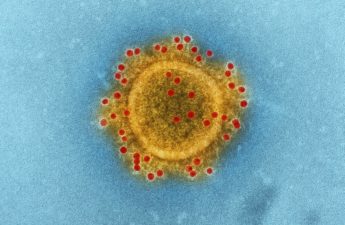Category: Infectious Disease
US dodged a bird flu pandemic in 1957 thanks to eggs and dumb luck
With a new strain spreading fast, will Americans get lucky again?
How we diagnose and define obesity is set to change – here’s why, and what it means for treatment
Athletes with a relatively high muscle mass, for example, may have a higher BMI. Even when that athlete has a BMI over 30 kg/m², their higher weight is due to excess muscle rather than excess fatty tissue.
New year, new norovirus outbreaks: Let’s add ‘hand washing’ to the resolution list!
Norovirus, a highly contagious virus causing vomiting and diarrhea, is prevalent during the winter months. Symptoms typically last 1-3 days and include nausea, vomiting, stomach cramps, and diarrhea. Prevention involves frequent handwashing, especially after contact with an infected person or contaminated surfaces, and proper cleaning and disinfection of affected areas.
Mixed Lessons from Intentionally Infecting People with Covid-19
The idea sounded counterintuitive, but by carefully dosing individuals with SARS-CoV-2 in a controlled setting, scientists could study how the virus affects the body and learn what factors may offer protective benefits.
These types of studies, called human challenge trials, could help fast-track understanding the deadly virus devastating the world, experts claimed. Others, though, questioned whether the potential benefits were worth the risk, particularly given the host of unknowns surrounding Covid-19, and the lack of available treatments at the time.
Why do disinfectants only kill 99.9% of germs? Here’s the science
Have you ever wondered why most disinfectants indicate they kill 99.9% or 99.99% of germs, but never promise to wipe out all of them?
Why winter makes you more vulnerable to colds – a public health nurse explains the science behind the season
Many viruses, including rhinovirus – the usual culprit for the common cold – influenza, and SARS-CoV-2, the virus that causes COVID-19, remain infectious longer and replicate faster in colder temperatures and at lower humidity levels. This, coupled with the fact that people spend more time indoors and in close contact with others during cold weather, are common reasons that germs are more likely to spread.
Avian flu virus has been found in raw milk − a reminder of how pasteurization protects health
Despite health experts’ warning that raw milk could contain high levels of the avian flu virus, along with many other pathogens, raw milk sales are up in the U.S.
Mounting research shows that COVID-19 leaves its mark on the brain, including significant drops in IQ scores
Ziyad Al-Aly, Washington University in St. Louis From the very early days of the pandemic, brain fog emerged as a significant health condition that many experience after COVID-19. Brain fog is a colloquial term that describes a state of mental…
Measles cases surge worldwide, infecting 10.3 million people in 2023
An estimated 107,500 people, mostly children younger than 5 years of age, died due to measles in 2023.
Can you die from long COVID? The answer is not so simple
In the United States, the Centers for Disease Control and Prevention reported 3,544 long-COVID-related deaths from the start of the pandemic up to the end of June 2022.
The symptoms of long COVID – such as fatigue, shortness of breath and “brain fog” – can be debilitating. But can you die from long COVID? The answer is not so simple.
Washington state sees steep increase in whooping cough cases
Nearly 1,200 cases reported to date.
Vaccination key to preventing severe illness
Bird flu detected in pigs – here’s why virologists are concerned
We don’t yet know if the pig was actually infected or if it had just snuffled up some contaminated material from the birds. At the moment, this particular outbreak doesn’t seem to have spread into any other pigs.
Study analyzes bird flu that infected a farm worker
An H5N1 flu virus from an infected farm worker could transmit through airborne droplets and was lethal in mice and ferrets.
The findings emphasize the risks from the current H5N1 outbreak and the need for continued monitoring and testing.
CDC Recommends Second Dose of 2024-2025 COVID-19 Vaccine for People 65 Years and Older and for People Who are Moderately or Severely Immunocompromised
The recommendation acknowledges the increased risk of severe disease from COVID-19 in older adults and those who are immunocompromised, along with the currently available data on vaccine effectiveness and year-round circulation of COVID-19.
First case of bird flu in pig discovered on small Oregon farm
State officials announced Wednesday that a severe form of bird flu has been detected for the first time in a pig on a small farm in Crook County in central Oregon.













